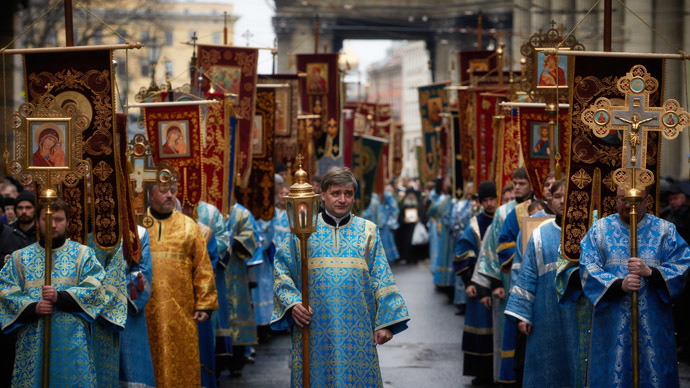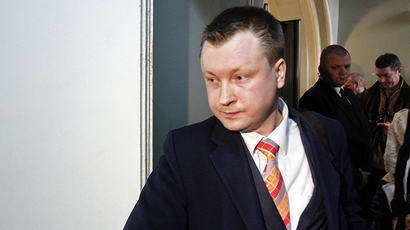MP seeks to establish Orthodox Christianity as national Constitution basis

Center left MP Elena Mizulina, known for her pro-life stance and conflicts with leaders of the LGBT community, has suggested amending the constitution emphasizing the exclusive role of the Russian Orthodox Church.
Mizulina said at the Friday session of the parliamentary group for the protection of Christian values, that the Russian constitution should include a preamble saying that “Orthodox Christianity is the basis of national and cultural originality of Russia”.
The move gained support from other participants in the session who represented the majority caucus of United Russia and the Communist Party caucus.
Currently the Constitution describes Russia as a secular state and protects freedom of conscience. Four religions – Christianity, Islam, Judaism and Buddhism are sometimes called ‘traditional’ in the mass media and politicians’ statements, but there is no legal basis for that.
In 2012 nationalist lawmaker Sergey Baburin also suggested mentioning Christianity in Russia’s constitution. Baburin said the country could follow Georgia’s example and underline the Church’s role in the nation’s history while still protecting the equality and freedom of all beliefs. Back then, the move failed to gain sufficient support.
According to a poll conducted by the Levada research center in late October this year, over 70 percent of Russian Federation citizens consider themselves Orthodox Christians. 44 percent of respondents hold the Russian Orthodox faith as the official religion of the country. 56 percent agreed that the Russian Orthodox Church played a major role in Russian history.
Mizulina represents the moderate leftist party Fair Russia and chairs the Lower House’s Committee for Family Women and Children. Earlier this year the committee developed a concept of the national family policy that stressed the role of a traditional 'nuclear family' and suggested strengthening it by supporting traditional religions.
The concept caused heated discussions and some celebrities and gay rights activists started posting obscenities about Mizulina on their social network pages and various blogs. In July this year Russia’s Investigative Committee – a federal agency for investigating high-profile crimes – reported that they started a criminal inquiry “into insulting a representative of a state authority” but did not mention the names of any suspects.
In November speech, Mizulina lashed out at surrogacy saying that
the practice, along with abortion, would eventually lead to
humanity’s extinction. Earlier this year she also suggested
making ‘morning after’ pills a prescription drug.














